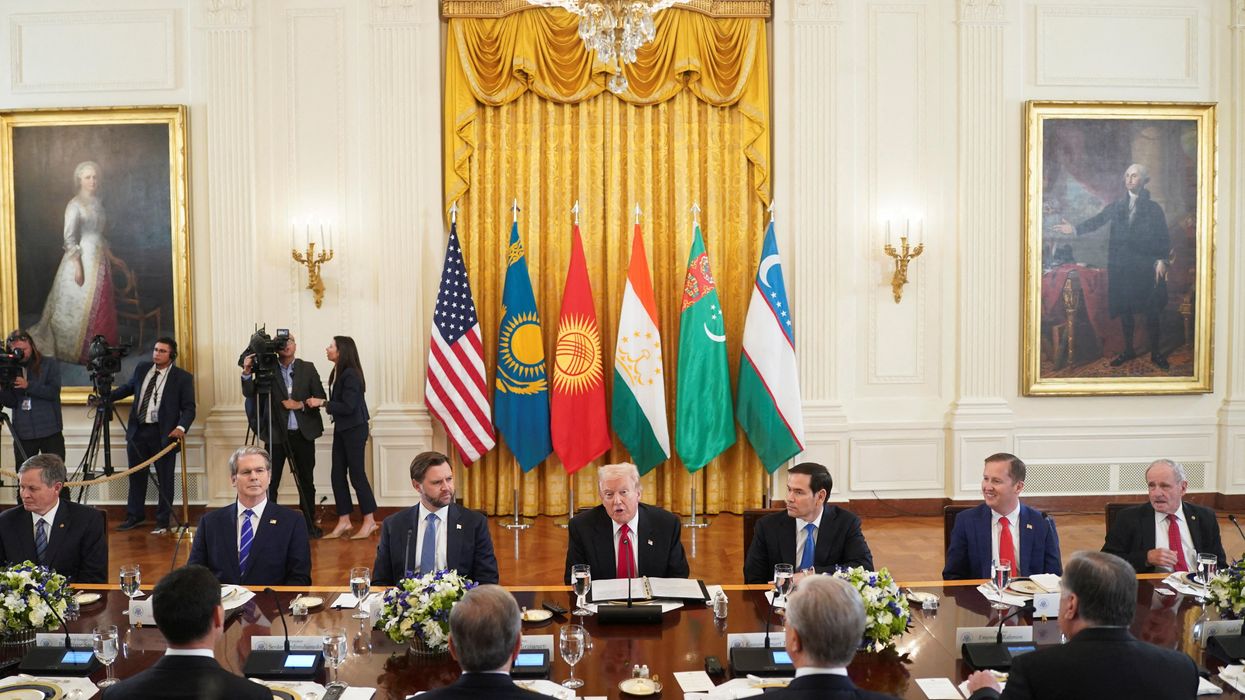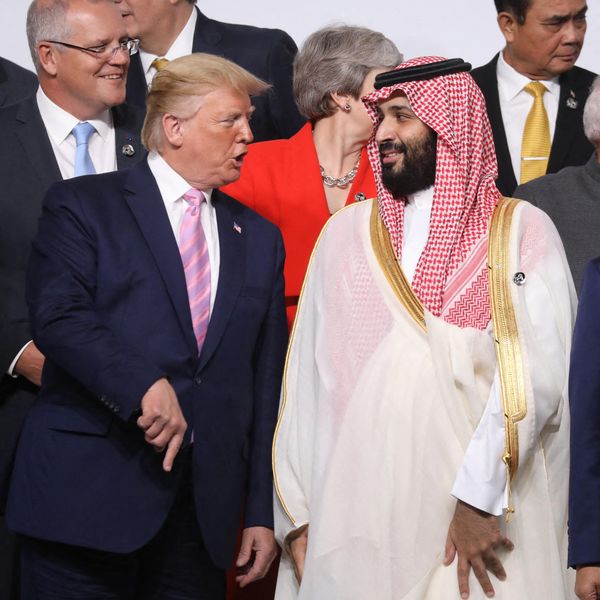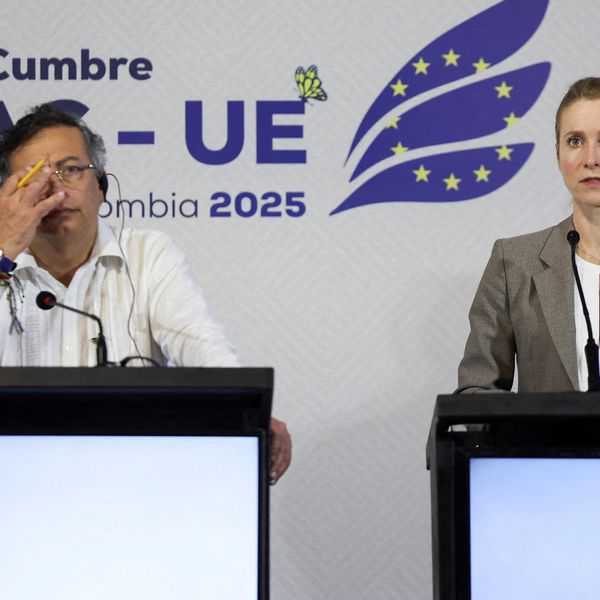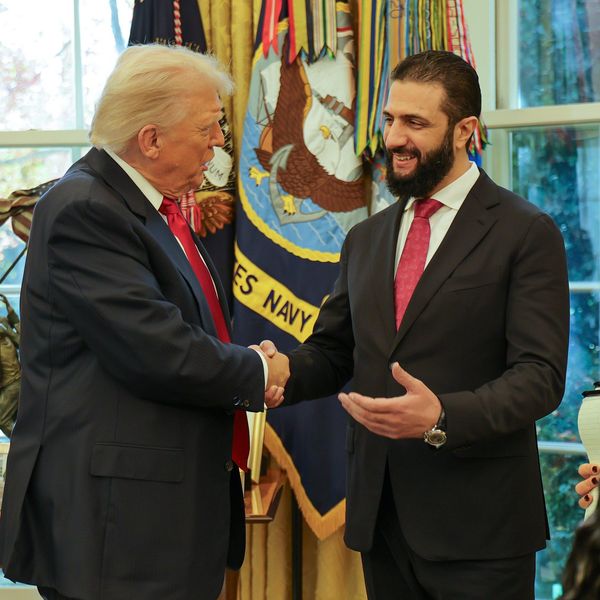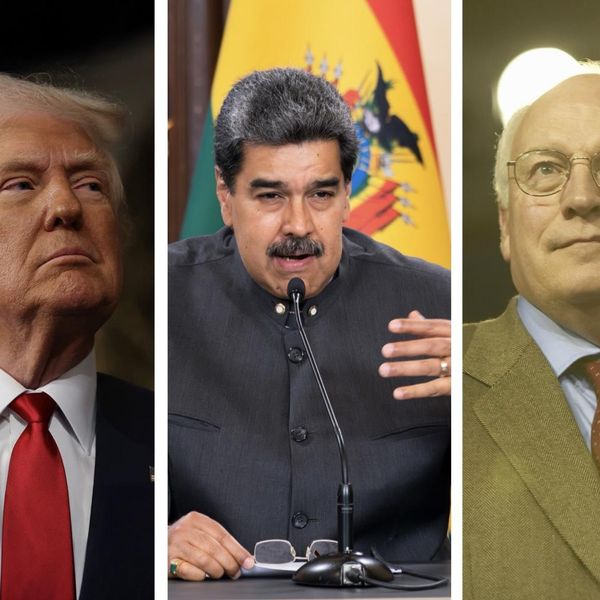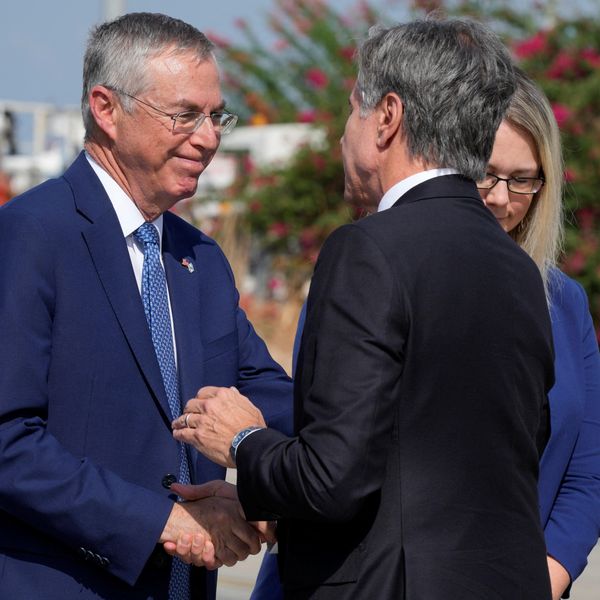Like domestic politics, American public opinion on foreign policy is extremely polarized and that is not likely to change soon as new polling from my team at the Institute for Global Affairs at Eurasia Group shows striking partisan splits on the top Trump issues of the day.
Among the most partisan findings: 44% of Americans support attacks on drug cartels in Latin America, even if they are unauthorized by Congress, while 42% opposed. Breaking down on party lines, 79% of GOP respondents support such strikes, while 73% of Democrats are against them.
Americans hold a mixed assessment of how President Donald Trump has implemented his “America First” policies in the first nine months of his second term. Overall, half of Americans think he is performing poorly and more than a third rate his performance as good or excellent. Broken down by party, the contrast is striking: 89% of Democrats say poor, while 53% of Republicans say excellent and 29% say good.
We asked about specific policies in the Middle East and Asia, but some of our most interesting findings pertained to how Americans think the president should conduct foreign affairs writ large. A plurality of Republicans (46%) think the most important obligation of the United States government is to protect America from foreign threats (only 13% of Democrats agree). Meanwhile, 40% of Democrats said promoting democracy, human rights, and the rule of law around the world is the most important (only 8% of Republicans agreed).
Most Democrats view a rise in authoritarianism that imperils democracy as the greatest threat to the United States. For a plurality of Republicans, the greatest threat is the country losing its national identity due to immigration and free trade. Most Democrats think the best way to achieve peace is through democracy promotion, diplomacy, and international cooperation. Republicans are split between primarily focusing on domestic issues and maintaining overwhelming military strength to defend the United States when necessary.
Trump has emphasized his acumen for dealmaking, and he made the case last month that he was deserving of the Nobel Peace Prize. As our survey was fielded in October, his administration brokered a ceasefire between Israel and Hamas in Gaza. However, 63% of Americans still do not think he deserves the coveted prize. Nearly all Democrats we surveyed (95%) say he shouldn’t get it, while a slight majority of Republicans (56%) say he should (about one in five Republicans were unsure).
There is evidence that when choosing a commander-in-chief, policy specifics may matter less than perceptions of strength. We tried to get a sense of how Americans view Trump’s leadership by presenting a series of descriptors and asking them to select up to two. About half of Democrats think he is reckless and destructive. About half of Republicans think he is tough and intelligent, and about a third consider him a peacemaker. This split reflects the paradox that Trump embodies, somehow reconciling a commitment to peace with aggressive international posturing.
Aside from partisan differences on Trump’s military action against alleged narco boats, which so far have killed 67 people, Americans are split along party lines on other specific conflict areas and how Trump is handling them.
More than a third of Democrats think the United States should stop supporting Israel’s military campaign in Gaza (the survey was conducted before and after the current ceasefire was agreed to on Oct. 10), while about a third of Republicans think the United States should support Israel unconditionally. When asked about their impression of Israel’s operations, half of Democrats say it can be described as genocide but only 8% of Republicans agree. Republicans are most likely to describe it as the destruction of a terrorist organization (51%), followed by a hostage rescue (40%).
Meanwhile, after the United States imposed massive trade tariffs on China in April, the Trump administration also announced plans to restrict visas for Chinese students. We found Democrats are overwhelmingly supportive of allowing Chinese students to study at U.S. universities (81%), while a plurality of Republicans are opposed (47%).
On Ukraine War policy, 19% overall said Trump was making things worse. On that question, only 40% of Republicans said Trump was making things better, while 72% of Democrats said the opposite.
A rare point of agreement emerged on Iran. Should Iran resume work on its civilian nuclear program, which appears highly likely, a plurality of Americans think the United States should impose harsher sanctions, including 50% of Republicans and 43% of Democrats. However, 39% of Republicans also support a return to military action compared with only 10% of Democrats. Democrats are much more likely than Republicans to support U.S. negotiations with Iran (43% vs. 24%).
Trump bombed Iranian nuclear sites and targeted alleged drug boats without congressional authorization, yet most Americans think the president should be required to seek approval from Congress before ordering military action overseas. There is some consensus among Americans overall, but the partisan split has grown drastically since we asked the same question a year ago. In 2024, 70% of Democrats and 77% of Republicans agreed that the president should not act without congressional approval. In 2025, 94% of Democrats and 50% of Republicans think the same.
A similar split exists on military spending. More than half of Democrats (58%) think the United States should decrease military spending compared with 18% of Republicans, most of whom favor maintaining current spending levels (66%).
Another era of common ground is military aid. Amid lively debates over the last several years about U.S. aid to Ukraine and Israel, a plurality of Americans, including 58% of Democrats and 41% of Republicans, think the United States has provided too much aid to other countries.
When asked about U.S. military presence in four regions (Asia, Europe, Middle East, and Western Hemisphere), more Americans are in favor of decreasing or withdrawing troops than increasing. After lengthy and costly wars in Afghanistan and Iraq, many Americans may be ready to reconsider their country’s military commitments abroad. That said, pluralities are still in favor of maintaining the status quo.
Trump's “America First” pitch clearly appealed to the American people – he had an edge over the Biden-Harris campaigns on foreign policy. His pledge to end wars and focus on the needs of average Americans clearly resonated, although views of his implementation are deeply polarizing. As the United States wages war on drug cartels and possibly gears up to topple Nicolás Maduro in Venezuela, perhaps the greatest test of “America First” and public opinion of Trump is yet to come.

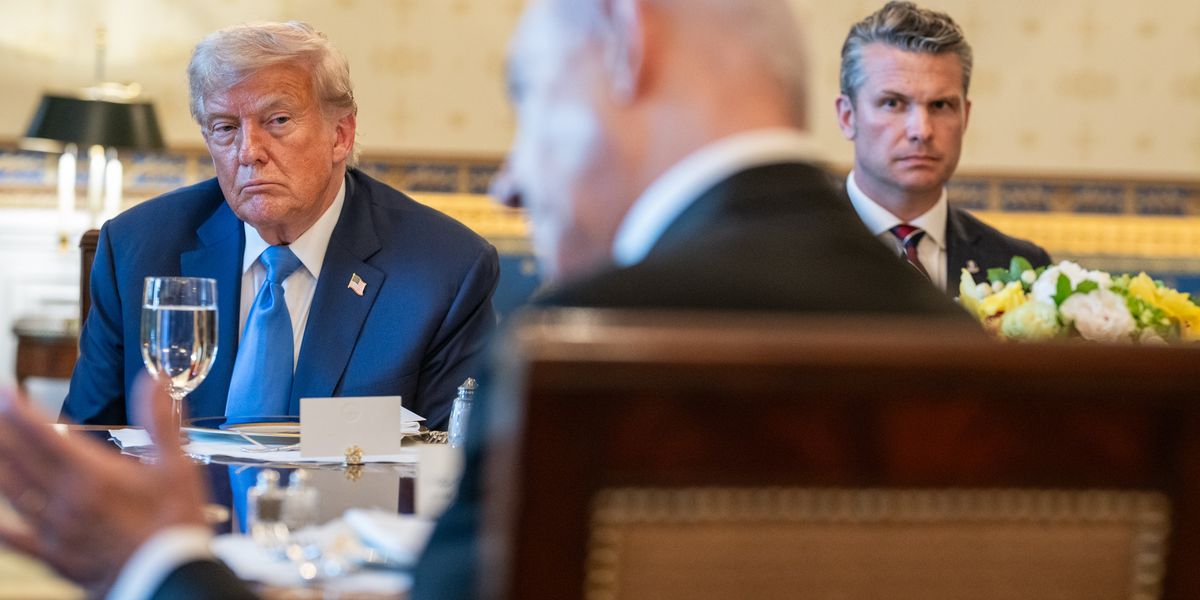

 A U.S. Army M113 armored personnel carrier guards a street near the destroyed Panamanian Defense Force headquarters building during the second day of Operation Just Cause, Dec. 20 ,1989. (Dod photo)
A U.S. Army M113 armored personnel carrier guards a street near the destroyed Panamanian Defense Force headquarters building during the second day of Operation Just Cause, Dec. 20 ,1989. (Dod photo) General Manuel Noriega is escorted onto American military aircraft by DEA agents shortly after his surrender and arrest in Panama, Jan, 3, 1989. (Public domain/Combined Military Service Digital Photographic Files)
General Manuel Noriega is escorted onto American military aircraft by DEA agents shortly after his surrender and arrest in Panama, Jan, 3, 1989. (Public domain/Combined Military Service Digital Photographic Files)